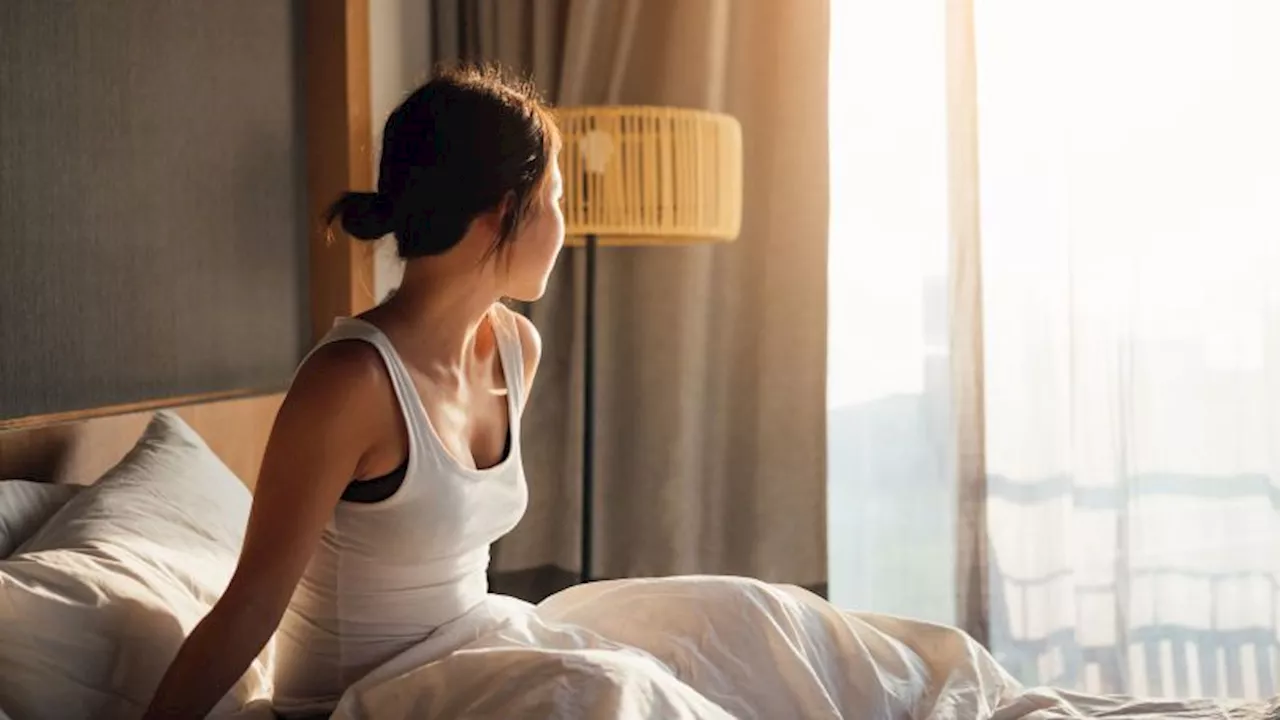A new study suggests that people's mental health and well-being fluctuate throughout the day, generally peaking in the morning and declining in the evening. Researchers analyzed data from over 49,000 people, finding a correlation between better mental health and earlier times of day. While the study highlights a potential link, researchers caution that further investigation is needed to determine causality.
Your parents may be right: Get some sleep and you’ll feel better in the morning, according to new research. “Our study suggests that people’s mental health and wellbeing could fluctuate over time of day,” said lead study author Dr. Feifei Bu, principal research fellow in statistics and epidemiology at University College London, in an email. “On average, people seem to feel best early in the day and worst late at night.
“Mood is a temporary affective state, while mental health and well-being are broader and more stable conditions that include emotional, psychological, and cognitive appraisals,” she added. When resources are available Knowing how mental health and well-being fluctuate may give new insight into how resources should be made available.
MENTALHEALTH WELLBEING SLEEP DAYCYCLE RESEARCH
United States Latest News, United States Headlines
Similar News:You can also read news stories similar to this one that we have collected from other news sources.
 The Disengaged Teen: Helping Kids Learn Better, Feel Better, and Live BetterAuthors Jenny Anderson & Rebecca Winthrop Explain Teens’ Four Modes of Engagement — & How They’re ‘States, Not Traits’
The Disengaged Teen: Helping Kids Learn Better, Feel Better, and Live BetterAuthors Jenny Anderson & Rebecca Winthrop Explain Teens’ Four Modes of Engagement — & How They’re ‘States, Not Traits’
Read more »
 Chargers offseason primer: ‘Build, build, build, better, better, better, version 2.0’A look at the Chargers’ offense, including returning starters, their pending free agents, salary cap issues and upcoming draft picks.
Chargers offseason primer: ‘Build, build, build, better, better, better, version 2.0’A look at the Chargers’ offense, including returning starters, their pending free agents, salary cap issues and upcoming draft picks.
Read more »
 New Advances in Sleep Health: Caffeine, Diet, Napping, and Sleep Apnea TreatmentsThis article explores recent findings and developments in sleep health, covering topics such as caffeine consumption, diet and insomnia, napping strategies, and new treatments for sleep apnea.
New Advances in Sleep Health: Caffeine, Diet, Napping, and Sleep Apnea TreatmentsThis article explores recent findings and developments in sleep health, covering topics such as caffeine consumption, diet and insomnia, napping strategies, and new treatments for sleep apnea.
Read more »
![]() Sleep Tracking Devices: Data Overload or Pathway to Better Rest?This article explores the growing popularity of sleep tracking devices and the potential downsides of focusing too heavily on sleep data. It argues that while tracking sleep can be helpful, an obsessive approach to optimizing sleep, known as orthosomnia, can actually worsen sleep quality. The article emphasizes the importance of considering the bigger picture, including diet and lifestyle factors, for achieving good sleep.
Sleep Tracking Devices: Data Overload or Pathway to Better Rest?This article explores the growing popularity of sleep tracking devices and the potential downsides of focusing too heavily on sleep data. It argues that while tracking sleep can be helpful, an obsessive approach to optimizing sleep, known as orthosomnia, can actually worsen sleep quality. The article emphasizes the importance of considering the bigger picture, including diet and lifestyle factors, for achieving good sleep.
Read more »
 50 Years of Sleep Research Reveals Crucial Link Between Sleep and Mental HealthA comprehensive review of sleep research spanning 50 years highlights the significant impact of sleep on mental health, emphasizing the importance of prioritizing sleep for emotional well-being and overall health.
50 Years of Sleep Research Reveals Crucial Link Between Sleep and Mental HealthA comprehensive review of sleep research spanning 50 years highlights the significant impact of sleep on mental health, emphasizing the importance of prioritizing sleep for emotional well-being and overall health.
Read more »
 These Foods Can Help You Sleep BetterNutritionist and sleep expert, Dr. St-Onge, shares foods that can improve your sleep quality. Tryptophan, found in turkey and other sources, plays a role in serotonin and melatonin production, crucial for healthy sleep. Other beneficial foods include whole-grain carbs, healthy fats, and micronutrients like zinc, magnesium, vitamin B6, and folate. Conversely, poor diet can lead to poor sleep and cravings for unhealthy foods, creating a vicious cycle.
These Foods Can Help You Sleep BetterNutritionist and sleep expert, Dr. St-Onge, shares foods that can improve your sleep quality. Tryptophan, found in turkey and other sources, plays a role in serotonin and melatonin production, crucial for healthy sleep. Other beneficial foods include whole-grain carbs, healthy fats, and micronutrients like zinc, magnesium, vitamin B6, and folate. Conversely, poor diet can lead to poor sleep and cravings for unhealthy foods, creating a vicious cycle.
Read more »
